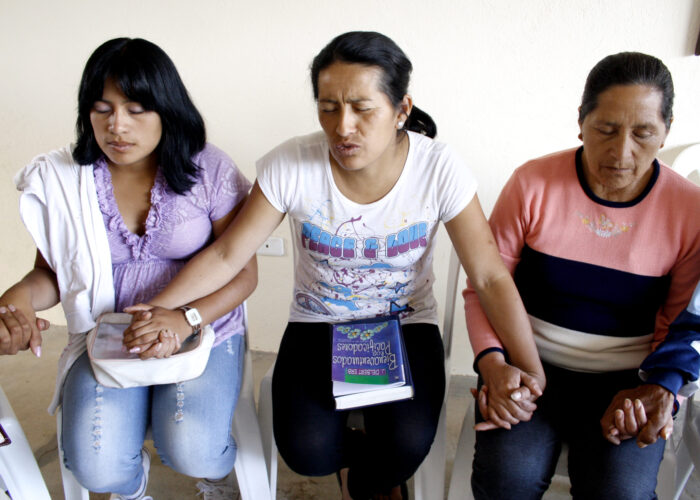Titus Presler, a missionary theologian, has proffered a definition of
mission as “ministry in the dimension of difference.” Since mission in
the Christian sense pertains to the person of Christ, we might modify
this definition of mission as the process of crossing barriers of human
difference, whether of race, class, or religion, in witness to Jesus
Christ. To these we might add key statements from Mennonite Mission
Network, which combine the element of cross-cultural witness with the
quality and scope of that witness. As to quality, “Mennonite Mission
Network exists to lead, mobilize, and equip the church to participate in
holistic witness to Jesus Christ in a broken world.” Missio Dei #22,
our most comprehensive statement on mission, defines holistic witness as
“hold[ing] together evangelism, witness and personal transformation
with peace, justice, and social transformation” (p. 26). Finally, for
emphasis to the scope of mission—“in a broken world”—we may add the
phrase from our vision statement—“We envision every congregation and all
parts of the church being fully engaged in God’s mission—across the
street, all through the marketplaces, and around the world.” Yet
whether the frontier is local, regional, national, or international,
mission implies movement—the sending of disciples to make disciples, and
find fellowship, across the dividing lines of human existence.
While
these statements have undoubtedly shaped my view of mission, they
themselves are rooted in more foundational texts, the scriptures that
ground our faith and life in Christ. Here are ten texts to which I
return to renew my call to mission.
Christ’s
mission was to create in himself “one new humanity in place of the
two.” “He came preaching peace” to Jew and Gentile alike; estranged
peoples come together through faith in him.
The
nations stream to the abode of Israel’s God to learn God’s ways. The
nations abandon violence and become a people of God’s peace.
From
the ruins of Babel (Gn 11), God begins to gather a community across
cultures—not through forced conformity but through the humble obedient
faith of a family by which “all the families of the earth will be
blessed.”
In line with Israel’s prophets,
Jesus declares his ministry as mission—“anointed” and “sent” to “bring
good news to the poor”, not of Israel alone, but of the nations.
John
sees the means and the ends of mission: the Lamb who gave his life for
people from “every tribe and language and people and nation” has “made
them to be a kingdom and priests”, united in the service and worship of
God.
Paul implores an ethnically
and economically diverse congregation to remember its foundation and
unity: Jesus who served others calls disciples who serve one another
(“wait for one another”).
Disciples in
Antioch receive a new name, Christians, because Jews from Jerusalem
dared to proclaim their Messiah, Jesus, to the nations. This
intercultural church, born in mission, breeds mission, sending Barnabas,
Saul, and others as witnesses to the good news of Jesus Christ
throughout the Roman world (Acts 13ff.).
In the same peace and forgiving Spirit that the Father sent Jesus does Jesus send disciples into the world that God so loves.
Jesus
engages a woman of enemy territory in conversation, relativizes the
barriers between cultures, and discloses his identity as the Christ.
The Samaritan woman becomes the gospel’s first evangelist, she whose
testimony stirred others’ faith in Jesus, just as another woman, Mary
Magdalene, became the first person to announce the good news of Jesus’
resurrection (Jn 20:1-18).
After exhorting
disciples to let their light shine so that others may glorify God,
Jesus describes his mission as fulfillment, not abolishment, of culture.
While this does not mean that religions, cultures, and societies have
not sinned and fallen short of the glory of God (Rom 3:23)—otherwise,
Jesus would not have needed to come—it does mean that mission in the
name of Christ blesses that which speaks of the righteousness of God in
every culture.





